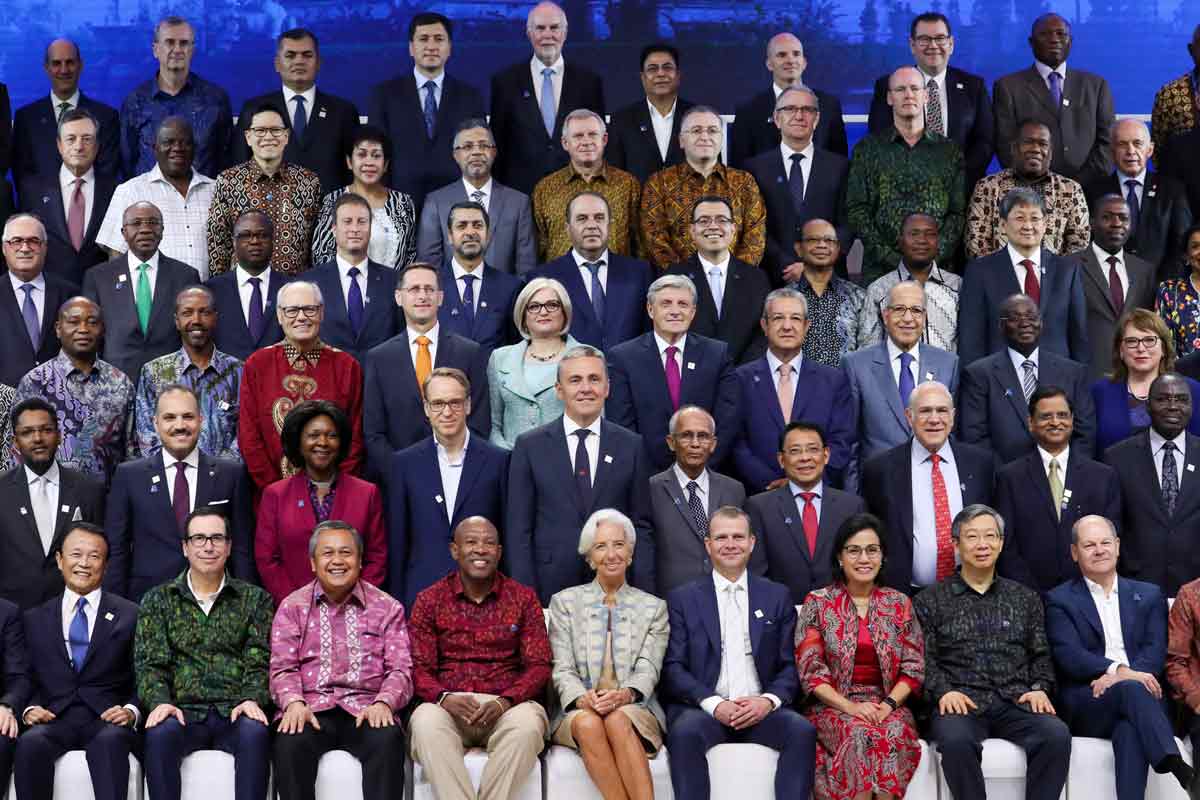Risks from the United States (US)-China trade war and an expected turn in global monetary policy will feature high on the agenda as finance and central banking chiefs from the Group of 20 (G-20) gather this weekend in Fukuoka, Japan.
The meeting takes place as the world’s two biggest economies ramp up tariffs against each other, hurting the global economy and leaving policy makers struggling to shore up growth. The G-20 officials are also set to tackle issues ranging from enhancing financial sector security and imposing tax on international transactions.
While an official communique is due at the end, interesting developments often occur at one-on-one meetings. The most anticipated is the one planned between US Treasury Secretary, Steven Mnuchin and China’s central bank chief, Yi Gang. Whether the two countries can get beyond their current impasse will be keenly watched.
Here are the big themes to look out for:
Trade-war drama
It’s not just China in President Donald Trump’s tariff cross hairs. Tariffs on Mexico are set to take effect next week, unless a dramatic last-moment agreement is reached. And then there’s the prospect of levies on imported cars, which would hammer Japanese, Korean and European automakers. So, watch out for plenty of commentary around protectionism.
Finance chiefs will bemoan the spill-overs from the trade war into the global economy, but some will hold back from directly criticising Trump’s tariffs given the heavy presence of the US in G-20 discussions. Japanese officials have said a statement against protectionism probably won’t make it into the communique, according to a local newspaper report.
Dos and don’ts
Be on the lookout for officials to frame trade policy recommendations around dos and don’ts. Among the “don’ts”: statements to ensure no one economy manipulates its currency, particularly on the heels of a heated US Treasury report that cast a wider net for its manipulator watch list.
The Trump administration has blamed a strong dollar for hurting US exports and comments from the White House challenge the G-20’s typical preference for not directing exchange rates verbally or otherwise. “Should the G-20 provide us with any indication of FX (foreign exchange) becoming topical, it should see the dollar coming under early selling pressure,” Morgan Stanley analysts said in a report to clients on Thursday.
On the "dos," Asian officials are likely to tout the multilateral and regional pacts enacted, or in progress, as a sign that global trade plods on amid headwinds.
Fed and friends
While central banks lack the firepower they once possessed, the world is again looking to them to solve economic troubles. Australia recently cut interest rates for the first time in three years, and expectations are growing for the Federal Reserve to slash rates this year.
Financial innovation also remains a high-priority agenda. A seminar on the topic is scheduled, and Asian economies that have taken the lead on financial technology will have a chance to share their experiences.
Also look for central bankers to exchange ideas on two of the biggest structural headaches they’ve been dealing with since the last financial crisis: persistently low inflation, and how to better measure the labour market amid the emergence of the gig economy.
Digital challenges
The rise of the digital economy has raised questions on how to appropriately charge for cross-border transactions, including on internet giants. International taxation issues will take centre stage at the kick-off symposium on Saturday. Mnuchin is set to join Chinese Finance Minister Liu Kun on a panel to discuss the issues, an intriguing and rare joint appearance.
The G-20 countries are aiming to find agreement on imposing taxes based on where the firm does business rather than on the firm’s location, Japan’s Nikkei Asian Review reported last month.
Then there are growing threats and instances of cyber-attacks – including on high-profile targets such as hotelier Marriott International Inc. and Singapore’s biggest public healthcare group – which have kept financial policy makers on alert to put up appropriate guards.
The Financial Stability Board, an international outfit to tackle challenges around regulation and supervision of the sector, is working to set up guidelines on cyber-attacks and recently delivered a progress report to G-20 attendees.
Italy debt
With Italy as a G-20 member, the country’s finance chiefs may have a say on the European Commission’s recent warning that Italy hasn’t made sufficient progress in reducing its debt and that a disciplinary process is “warranted.”
While any penalties would be relatively small, an official reprimand from the bloc could still spell trouble for Italy, which is already roiled by financial markets and plagued by internal tensions.
The G-20 finance group has gathered annually since 1999, with Japan taking presidency for the 8-9 June gathering.
The main players will hail from Argentina, Australia, Brazil, Canada, China, France, Germany, India, Indonesia, Italy, Japan, Mexico, Russia, Saudi Arabia, South Africa, South Korea, Turkey, United Kingdom, United States, and the European Union. Others will also attend, including officials from constituencies such as Singapore, Switzerland, as well as from multilateral organisations like the International Monetary Fund. - Bloomberg
